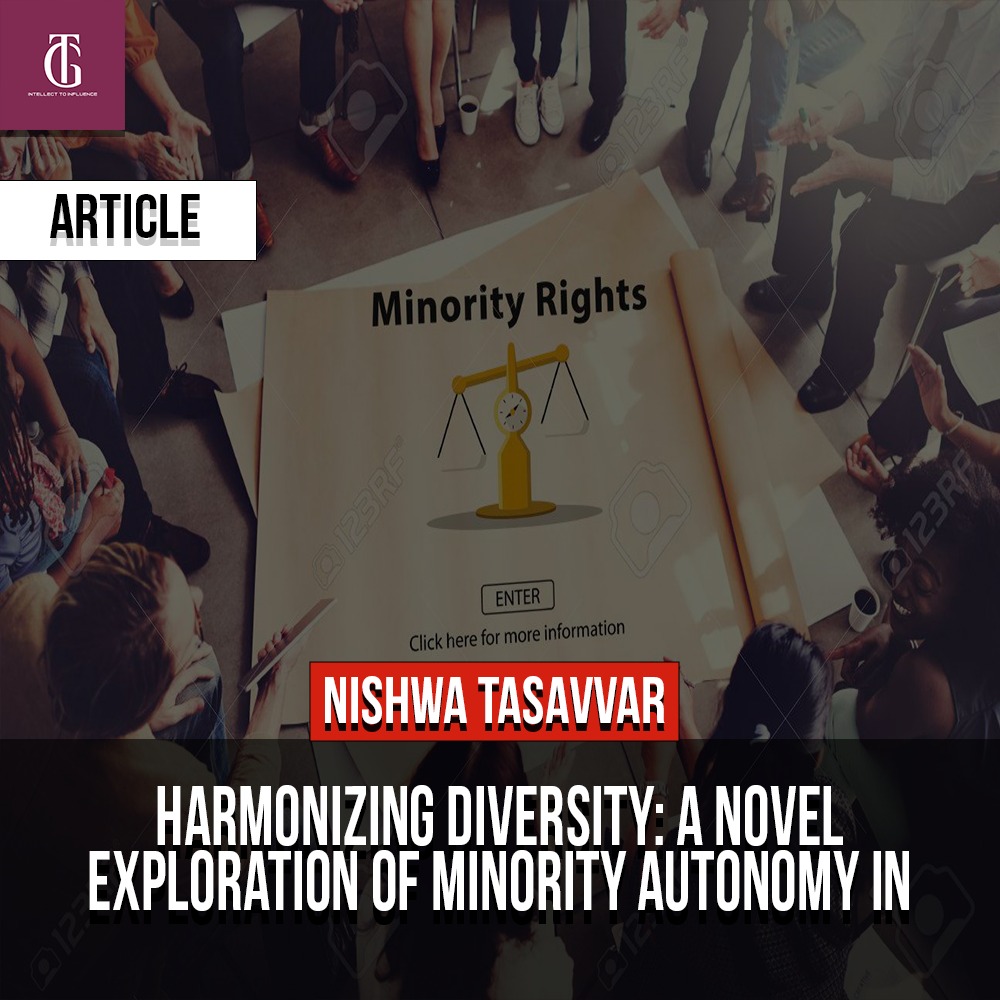
The inception of the Pakistani state was primarily driven by the apprehensions of the Muslim minority in British India, fearing marginalization within an overwhelmingly Hindu-majority
united India. This sentiment stemmed from the perceived risk of becoming second-class citizens subjected to discrimination. The mutual hostility between these two communities and their
struggle to bridge differences compelled British colonial rulers to acknowledge the distinct identity of the Muslim minority, resulting in separate electorates and representation.
As the partition of British India approached, Muslims, despite their linguistic, ethnic, and cultural diversity, rallied around a shared identity. They perceived themselves as a cohesive and
distinct group, differentiating themselves from other subcontinental communities. While the apprehension of discrimination within a Hindu-majority state drove the demand for Pakistan, the birth of the new nation introduced several religious minorities, mainly Hindus, Christians, and Sikhs.
However, post-independence, discussions about the rights of religious minorities intertwined with broader conversations on equality and discrimination, often taking on regional and ethnic
dimensions. Ethnic and linguistic minorities like the Bengalis and Baluchis raised concerns about discrimination and forced assimilation. The future of Pakistan’s vibrant array of minority groups faces distinct challenges, each demanding careful consideration and strategic resolution.
The rise of militant Islamic ideology, with its intent to erase distinctions among various faiths and cultures within Pakistan’s minority communities, remains a pressing concern. The
consequences of this ideological shift were starkly evident in the tragic suicide bombings in Quetta in February 2007. The government’s alignment with the US-led ‘war on terror’ led to
backlash from indigenous tribal communities in the North West Frontier Province and Baluchistan, underscoring the complexities of balancing national security interests with
preserving cultural diversity.
Parallel to this, persistent discrimination against both religious and ethnic minorities in fundamental rights like education, employment, political participation, and property ownership
persists. Accurate representation of minority communities in employment, higher education, and public services is hindered by a lack of transparent data. This skewed presentation hampers genuine progress toward inclusive representation.
Another hurdle lies in the establishment of democratic structures and the role of the military in Pakistan’s governance. For a multicultural society to thrive, robust democratic institutions are imperative. Economic development forms the fourth challenge, requiring equitable provision of
basic necessities like housing, clothing, and food. The prosperity of Pakistan’s minority groups hinges on addressing these economic disparities.
While positive strides have been taken in granting fundamental rights to religious minorities, the growth of extremism and intolerance within society threatens to nullify these gains. Efforts to protect religious minorities by General Musharraf and the military government are encouraging, including appointing non-Muslims to key positions. Yet, the principles of democratic governance and the rule of law remain compromised, thereby hindering genuine progress. Reports of attempts to forcibly convert Christians to Islam and attacks on places of worship underscore the struggles faced by religious minorities. The situation demands continuous vigilance to preserve religious communities’ rights.
Despite these challenges, Pakistan possesses the potential for progress. The trajectory forward involves recalibrating policies to prioritize diversity, bolstering democratic institutions, and
fostering an inclusive society. By addressing these challenges head-on, Pakistan can pave the way for a more harmonious and equitable future.
While international law and established norms unequivocally uphold principles of racial non- discrimination and equality, examining the tangible implementation of these principles is of
utmost importance. Criticisms arise from the perceived vagueness, which allows countries like Pakistan to enact de facto discriminatory policies.
Concerning implementation mechanisms, de facto discrimination persists due to the arbitrary enforcement of these laws. The overarching question arises: How can Pakistan effectively ensure the rights and equality of its minorities? The answer requires a multi-faceted approach involving legal reforms, societal awareness, and a commitment to upholding fundamental rights.
A regrettable part of Pakistan’s troubled legal and political history is the country’s inability to provide proper protection to ethnic, linguistic, and religious minorities. In this respect, two
tendencies that are especially concerning have developed. The first is the suppression of the rights of ethnic minorities like the Baluchis, Pathans, Mohajirs, and Sindhis, all of whom have
experienced significant government persecution in response to their calls for more autonomy.
Second, strict regulation against religious offenses has reduced the liberties of religious minorities, including Hindus, Christians, and Ahmadiyas. Extremist organizations within the
majority of Sunni Muslims have attacked religious minorities; these groups have a more substantial organizational capacity than their electoral backing. In addition to the ethnically
based disputes that have historically defined Pakistan, sectarianism seems to be going unchecked by the government, fueling communal hostilities, which have lately been most apparent in Sindh and Baluchistan provinces.
The lesson learned from history is that the founding principles of any nation must be grounded in inclusivity and respect for all citizens, regardless of their backgrounds. The quest for equality demands an ongoing dialogue open to the perspectives of minorities and majorities alike. By
fostering a culture of acceptance and understanding, Pakistan can truly live up to its ideals of independence and freedom.
In conclusion, as Pakistan embarks on rethinking the independence of its minorities, it becomes crucial to examine historical underpinnings, scrutinize principles of equality and non- discrimination, and explore effective avenues for their implementation, especially in a context where representative governance remains challenging. The journey towards a more inclusive Pakistan requires introspection, reform, and a collective commitment to upholding and protecting
every citizen’s rights.

Nishwa Tasavvar
The writer is a dedicated freelance columnist with a profound research interest in
advocating for human rights and nurturing the art of impactful newsroom writing.





